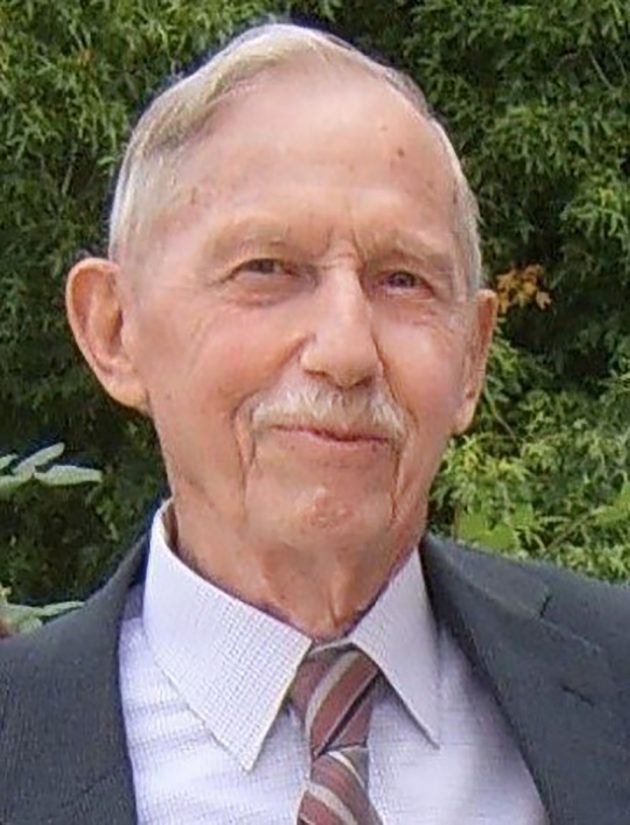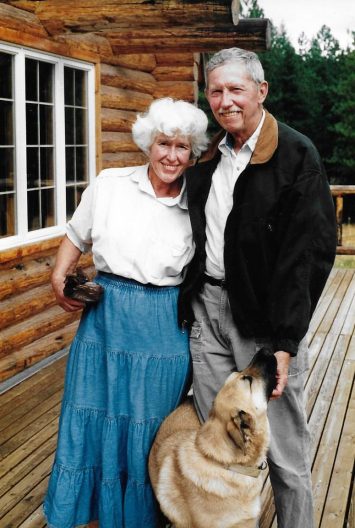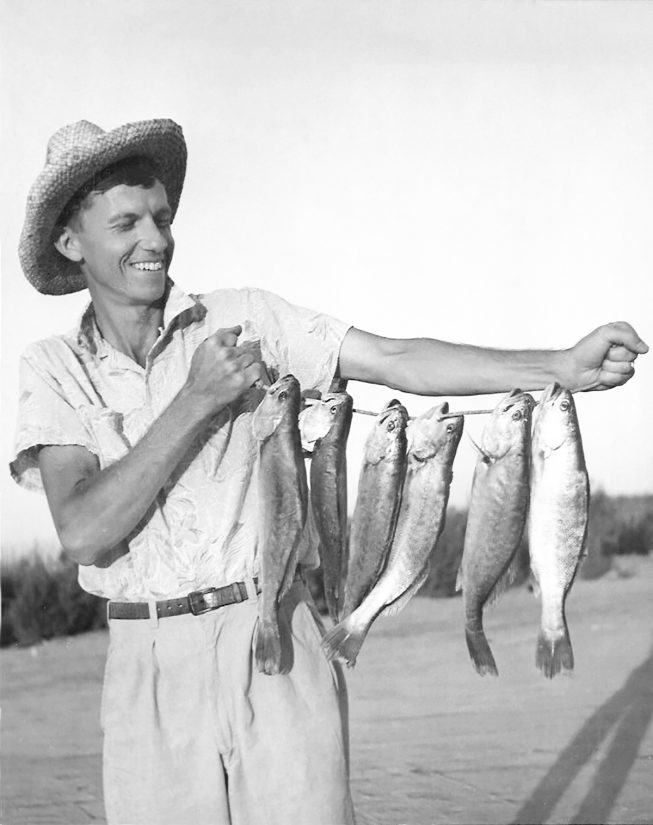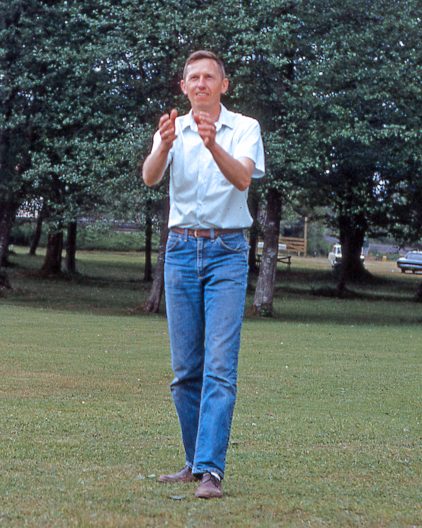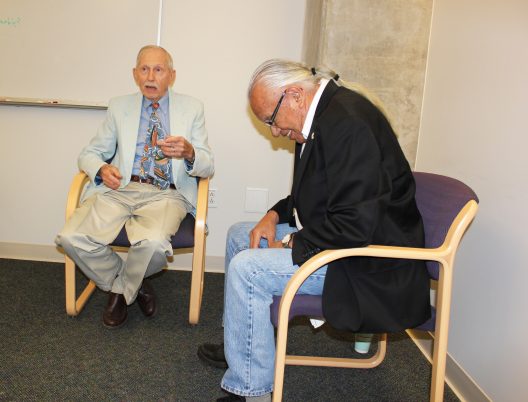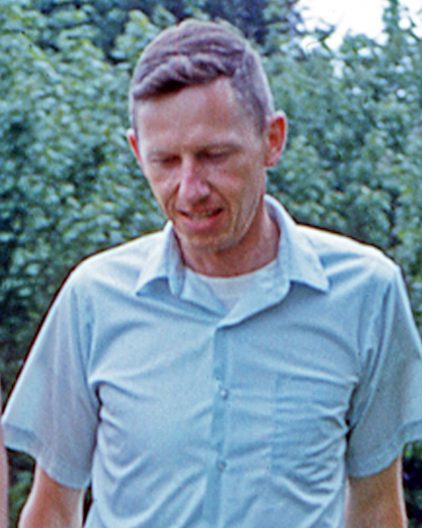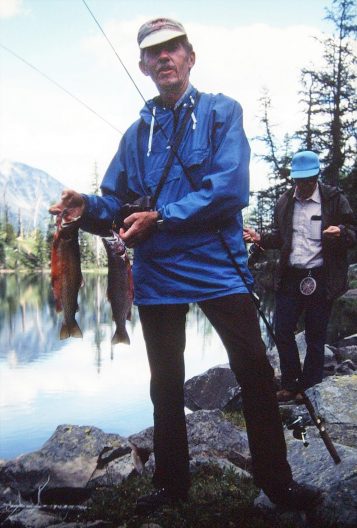Remembering Richard (Dick) Ralph Whitney
June 29, 1927–March 17, 2021
Thanks to Dick’s family and many students, colleagues, and friends for their contributions to this memoriam. Some content was adapted from an obituary published by Dignity Memorial https://www.dignitymemorial.com/obituaries/snohomish-wa/richard-whitney-10114346.
On 17 March 2021, Richard (Dick) Whitney, SAFS professor emeritus, passed away at the age of 93.
Dick was born in Salt Lake City, Utah, and after a stint in the Navy towards the end of World War II, he completed a BA (1949) and an MS (1951) in Zoology at the University of Utah. Dick obtained his PhD (Population of Walleye (Stizostedion viteum) in Clear Lake, Iowa) at Iowa State University in 1955.
Following his PhD studies, Dick worked at UCLA (1954–1957), the Chesapeake Biological Laboratories (1961–1967), and the then Bureau of Commercial Fisheries in La Jolla, California, where he was the acting assistant administrator (1967). The Washington State Coop Unit (now the Washington Cooperative Fish and Wildlife Research Unit) was formed in 1967 as a fisheries-only unit within the University of Washington College of Fisheries. At the time, the Washington Coop Unit was one of 23 across the country (there are now 40). Dick was appointed as the first unit leader and as associate professor without tenure (WOT), and he established the unit and its mission. He was promoted to professor in 1973, and retired from federal service in 1983/84, remaining as a professor WOT until 1993. Dick noted that he retired from the USGS after 21 years because he was asked to move to a new duty station in Washington, DC, and he chose to stay in the Pacific Northwest.
The main objectives of the original Washington Coop Unit were to train fishery biologists and have graduate students and unit personnel conduct research and extension activities. Dick’s first graduate students were Aven Andersen (PhD 1971), Duane Braaten (PhD 1970), and Brian Alee (PhD 1974). Early projects through the Coop included studies of the behavioral interactions between juvenile coho salmon and steelhead, angler participation and satisfaction in the trout sport fishery, and quantification of water temperature and migration of American shad. Dick was an early supporter of multidisciplinary studies, including work on Findley Lake in 1970 as part of the International Biological Program.
Dick Whitney and Assistant Unit Leader Richard Wydoski published Inland Fishes of Washington in 1979 (2nd edition 2003), a reference describing the distribution, life history, simplified pictorial keys, and photographs of 74 native and introduced species in Washington. SAFS Professor Tom Quinn noted that he still makes use of the volume.
In 1974, Dick was appointed to serve as a technical advisor to the Honorable Judge George H. Boldt in the Indian Treaty Fishing Rights Decision (aka US v. State of Washington or the Boldt Decision). In a 2008 article in Council, Dick noted that he had a member of the Colville Tribes as a student, and they nominated him. When Judge Boldt called him, Boldt said “Well the thing I like about you is that you’re working with all the parties to this dispute… I want somebody who can work with those people, talk to them, get them to reach agreements on how to manage the fish.” Dick emphasized the importance of the Boldt Decision because while previous decisions had concluded that the Tribes were entitled to a share of fish, the amount was not specified. In contrast, Judge Boldt decided that the split was 50:50 (because the parties could not reach agreement themselves). Following the decision, Dick was requested to provide advice on fishery problems and was appointed chair of the Fisheries Advisory Board to advise the court “on technical aspects of the case and make recommendations on questions of management and regulation of the resource.” Learn more about the decision and its background in this video of a conversation between Dick and Billy Frank Junior (Nisqually Tribe – environmental leader and treaty rights activist) in 2013. Dick gave his last seminar at SAFS in May 2014 (“My fisheries management experience with Judge George H. Boldt in his case, United States v. The State of Washington”) in which he discussed his involvement in the case and his subsequent work resolving fishing disputes.
In his role as a faculty member in SAFS, Dick taught a class on fisheries management. He was also a member of numerous very influential committees, supporting fisheries and fisheries management, including a stint as a member of the inaugural Scientific and Statistical Committee of the Pacific Fishery Management Council (Ed: SAFS has continued its participation on this committee and that of North Pacific Fishery Management Council), as commissioner of the Salmon and Steelhead Advisory Committee (1981–1984), and as chair of the Scientific Review Group for the Bonneville Power Administration (BPA) (1989–1994). Dick also chaired the mid-Columbia Coordinating Committee, which was established when the resource agencies and Tribes sued the Columbia River public utility districts because of the effects of their dams on fish survival.
Dick’s former graduate students spoke about the positive influence he had on their education and careers. “Dr. Whitney was a supportive advisor. He encouraged me and all the members of the unit in our academic studies, research, and personal lives,” recalls Russ Nelson (MS 1977).
“I learned how to identify all of the local species and how to collect basic field data. But, it was the personal time spent with Dr. Whitney that was my most valuable lesson,” said Fred Olney (MS 1975). Fred added, “when I was first called to testify in front of Judge Boldt, I walked into that hearing room, and there was Dick Whitney sitting near Judge Boldt off to the side in the jury box. Our eyes met and he gave me his usual big and reassuring smile and my confidence came back immediately.“
- Dick and Billy Frank Jr. at Boldt Talk. Tony Meyer
- Dick in 1969
Chuck Peven (MS 1990) recalled two of Dick’s sayings: “There is always an answer.” “Dick would pull that one out when I came across some obstacle that was halting my progress. It was his kind and subtle way of encouragement,” Chuck said. The second was, “Where is the romance factor?” (Dick’s response to push Chuck to find “more” in the data he collected).
“He was an inspiration to me based on his work with racial and social justice of the black community in society, and he inspired me to work on Indian fishing rights against the establishment as a matter of social justice,” said Brian Allee.
Phil Mundy (PhD 1979) recalls Dick’s expertise with complex problems during his time on Independent Scientific Group (ISG) for Bonneville Power Administration (BPA) and the Power Council: “Once again, Dick’s equanimity came shining through, as the ISG considered scientific proposals for funding that addressed keeping salmon populations alive within the hydroelectric system. As was the case in US v. Washington, solving problems was made more challenging by the highly charged political environment, the large amounts of money at stake, and the number of powerful institutions involved. Dick’s presence helped us through many tough spots.“
Jeff Laufle (MS 1982) noted that Dick was a wonderful mentor and friend, and his advice was helpful and well-considered. Dick and his wife entertained Jeff and other Coop people at their home near Seattle, then later at the log home they built near Leavenworth, WA. “Better and more gracious hospitality than theirs is hard to find,” recalled Jeff.
Dick was extensively acknowledged by his peers, the profession, and the broader community in many ways, but four stand out: a 1979 letter of thanks from Senators Magnusson, Jackson, and Packwood and Representatives Pritchard, Bonker, Dicks, Swift, and Lowry, recognizing the quality of his testimony on the status of anadromous fish in the Pacific Northwest; a signed photograph from George Boldt, who expressed his “deep appreciation for outstanding service to the court;” a blanket made by Northwest Indian Tribes presented during the Tribal Celebration of the 40th Anniversary of the Boldt Decision in 2014; and a shark species (the Humpback smooth-hound Mustelus whitneyi), named after him by a former student.
Dick was preceded in death by his wife, Mary Lou, and is survived by his children, Jennifer, Bill, Bob, and Gale, seven grandchildren, and ten great grandchildren.
